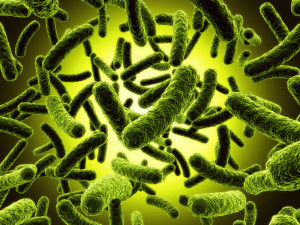Microbes
What an exciting time when it comes to learning all about the bacteria or microbes that live within our intestines and how they impact our health and well being! Called the microbiome, these trillions of gut microbes help us extract nutrients from food and have a big influence on our metabolism, cravings, mood, and mental function.
Last week I listened to two interviews on the gut microbiome. The first interview was with Martin Blaser, MD, author of the book The Missing Microbes. The second interview was with Raphael Kellman, MD, author of the book The Microbiome Diet. I have high lighted below several key discussion points from the interviews which I found fascinating and which I hope you will find fascinating too. And the summary saves you a little time…kind of like cliff notes!
Dr. Martin Blaser pointed out that last year the CDC published a survey of antibiotic use in the U.S. In 2010, there were 258 million courses of antibiotics prescribed. That is a lot of antibiotics! Interestingly, the northern part of the U.S. and the midwest were at national average when it came to antibiotic use. On the west coast, there was way less use, in the south there was way more use. A cultural or educational component to antibiotics?
In summary, Dr. Martin Blaser is genuinely concerned about the overuse of antibiotics. The more we use them, the more we are selecting for resistant organisms. In other words, we are becoming antibiotic resistant because we are depleting our normal organisms that are part of our defense against invaders. He fears the extinction of bacteria in the human microbiome and the implications of this extinction.
A few of his key points:
•When you stop a round of antibiotics, everything just doesn’t bounce back to normal. Antibiotics change the microbe composition in the body. Some organisms increase, some decrease, and some go down to zero. When they go down to zero, they do not come back!
•The average child in the U.S. gets 4 courses of antibiotics by the time they are three. In Sweden the average child gets 1.4 courses. By the age of ten, the average child in the U.S. gets 10 courses of antibiotics. Do we need to think about using antibiotics more judiciously? Are we giving them for short term benefit without thinking of long term risk? And are we giving them when they are not indicated? For example, most ear infections are caused by viruses, not bacteria. If this is the case, does it make sense for a doctor to prescribe antibiotics for an ear infection when it is caused by a virus? Technology does exist today to determine a viral from bacterial infection, but it is not economically scalable right now.
•Do antibiotics contribute to obesity? Farmers have been feeding antibiotics to their livestock for years! Antibiotics promote their growth by helping the livestock to use their food more efficiently to convert food calories into body mass. Is overuse of antibiotics contributing to obesity in humans? Something to think about!
Dr Raphael Kellman’s interview focused on the importance of a diverse microbiome and how an altered gut microbiota play a huge role in disease. He also discussed way to feed your gut bacteria and promote diversity.
Several of his key points:
•An altered gut microbiota plays a huge role in type 2 diabetes, obesity, and autoimmune disease such as Rheumatoid Arthritis, Hashimotos, and Crohn’s. What alters your gut bugs? Pesticides, GMOs, NSAIDs, Proton Pump Inhibitors and antibiotics can all affect your microbiome.
•There is no one ideal microbiome. In fact, there are numerous good microbiomes. One bacteria may be healthy in one context and unhealthy in another context. We determine what is good and not good by how the host (you) reacts.
•Our genes have not changed much since the Paleo era, but our microbiome evolves quickly. In fact, it can change significantly in one week! It is a master key to solving the mystery of many chronic diseases.
•We need to feed the microbiome with prebiotics like inulin, resistant starch foods, and fermented foods such as kefir, sauerkraut, and kimchi. You can check out Dr. Kellman’s book for his specific microbiome diet. (My comment: Please note that folks with Small Intestinal Bowel Overgrowth, a.k.a. SIBO, may need to start very slowly with prebiotics or deal with the SIBO before adding inulin and other traditional prebiotics to their diet).
•How do you know if your gut microbiome is unhealthy? Certainly you may have symptoms ranging from bloating/gas to pain/inflammation to fatigue and brain fog. There are also simple lab tests that you can do to measure biomarkers. If you are interested in learning more about your gut health and if a less than optimal microbiome is contributing to unpleasant symptoms and even disease, please schedule a complementary strategy session with me now.

